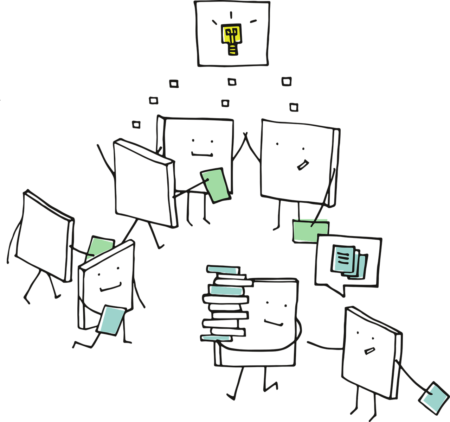PEST
Project Execution Strategy Training (PEST) simulations are designed to provide a teaching method to help people develop essential project management skills that is both effective and fun.
PEST can be used as a highpoint at the end of a project management training course, as a standalone learning event or simply as a competitive team-building exercise.

PEST simulations are designed to provide a teaching method to help people develop essential project management skills that is both effective and fun. PEST can be used as a highpoint at the end of a project management training course, as a standalone learning event or simply as a competitive team-building exercise.
Many projects are still planned using single-point, deterministic estimates with no clear understanding of what to do if the estimates prove to be incorrect. The result of this is often the failure of projects to deliver on time and within budget. PEST provides the vehicle to test a simulated project’s execution strategy that considers the variable nature of estimates for cost and time.
In its simplest form, it is a transaction-based simulation where the teams submit the actions and orders they want to make during a project period. This is then input to the computer-based project simulation which responds with a progress report showing what has happened during that period.
Teams study the progress report and decide what actions and orders they want to make in the next period. This process continues for up to 30 periods or until the project is shown as 100% complete, and can be easily completed in a normal working day. Teams control their own pace through the exercise but typically 15 minutes per period is realistic.
PEST can be used as part of assessment centre when determining if an individual is suitable for a key role in the project.
PEST simulations are most effectively run in a face-to-face environment but can be run remotely if necessary and can accommodate between 1 and 20 teams simultaneously. Teams will need at least 6 hours to read and understand the briefing documents and prepare their schedules and cost projections. This can be over a longer period of time (perhaps days) and can be achieved remotely. However, as the outcome can be shown to be dependent on team performance, it is beneficial for the teams to meet and work together, even briefly, before the event starts.
Lucidus can provide a 2½ or 3-day package which will include basic skills training, an introduction to the simulation, planning supervision and facilitation, running the simulation and a closing summary of the results. Lucidus can also provide different arrangements to fit with a client’s requirements.
The basic skills training includes: reasons for failure, critical path analysis, the importance and use of float, basic budgets, cash flow and finance, resource management, understanding risk, monitoring, control and reporting.
